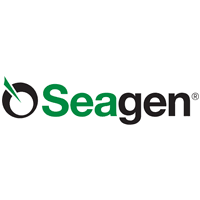Texas jury awards $41.8 Million as Daiichi Sankyo infringes on Seagen Patent
- IP News Bulletin
- Aug 17, 2022
- 2 min read
A Texas federal jury concluded that the popular breast cancer medication Enhertu manufactured by Daiichi Sankyo violated a patent owned by Seagen and awarded $41.8 million in royalties as a result.
The jury also found that the patent No. 10,808,039 was violated willfully, although no punitive damages were given. After the parties presented their cases over the course of four days, the jury took barely two hours to reach a verdict.
Additionally, Seagen has asked for royalties from Enhertu sales made in the US up until the patent's expiration in November 2024. Later this year, that matter will be arbitrated.
Naoto Tsukaguchi, Daiichi's general counsel, stated in a statement that the company "disagrees with the jury finding" and will "examine options" for the case going ahead.
In a separate development, a committee at the USPTO has decided to begin reviewing Seagen's '039 patent. Daiichi is "pleased," according to Tsukaguchi, with that development.
Although Enhertu is the most significant antibody-drug conjugate anti-cancer medication produced by Daiichi Sankyo, the firm only suffered a little financial blow. 7.5% of the $558 million in total sales that Enhertu made in the United States in 2020 and 2021 was made up of the $41.8 million royalty payment.
Daiichi can also easily withstand the impact if it is decided that royalties will be paid at a rate of 7.5% moving ahead. By 2030, Enhertu's sales are anticipated to reach $5.7 billion. The drug's marketing rights are split between Daiichi and AstraZeneca.
Although Seagen secured a favourable decision, industry observers have cautioned that the case is far from over because an appeal is expected.
One such analyst stated in a letter to clients that while "our assessment of the files suggests that Seagen has a good probability of succeeding, we estimate the value of a positive conclusion is only worth $2 (per share)". We advise investors to proceed and concentrate on the key elements of Seagen's story—the commercialization of its potentially multiple-billion dollar product Padcev and the clinical advancement of its mid-stage pipeline.
According to a press statement from Seagen, the business is contesting Daiichi's ownership of some technology utilised in the development of trastuzumab deruxtecan and other therapeutic candidates.
In the pending arbitration, Seagen claims that the compounds' linker and other ADC technology are advancements above Seagen's early work in the field. By the middle of 2022, the arbitration case should have a decision.
Update Aug 17 2022-
The arbitrator in the case has ruled in favor of Daiichi last friday. This
development has given more strength to the speculation that Seagen could sell itself to Merck for $40 billion.











Comments